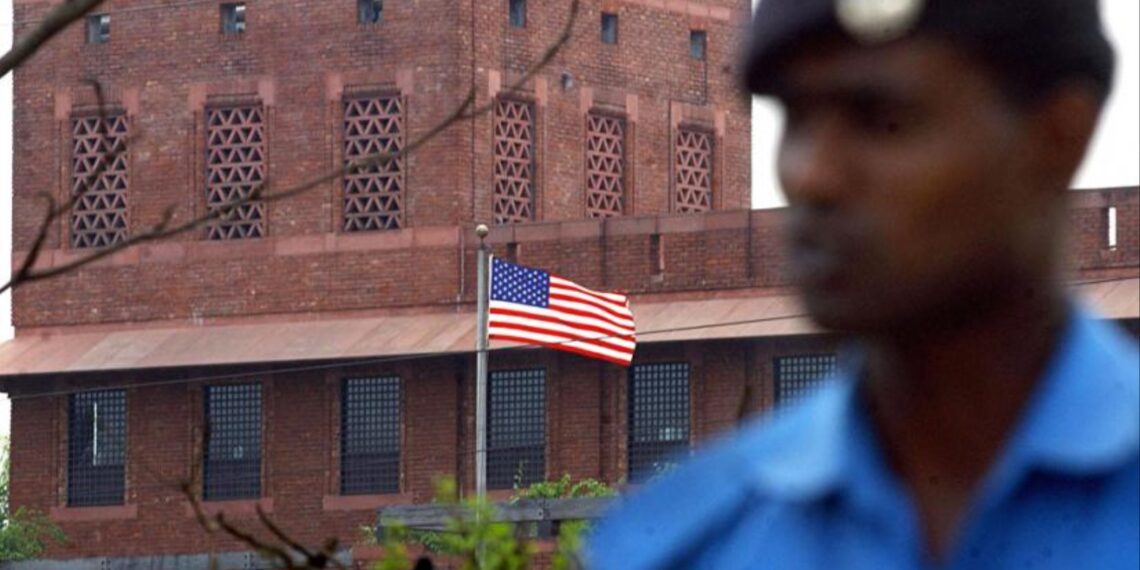Even as the US State Department recently indicted the Bangladeshi security forces for having “conducted extrajudicial killings and committed other human rights violations” in 2022, the American embassy in Dhaka has taken cognizance of several instances of the ruling Awami League’s involvement in misrepresenting violent incidents aimed at framing the BNP.
The State Department’s strong charge against the Bangladeshi security forces forms part of its ‘Country Reports on Terrorism 2022: Bangladesh’, which was made public on November 29, two days after American Ambassador to Bangladesh Peter D Haas returned to Dhaka from a 10-sojourn in Sri Lanka.
The report otherwise observed that “Bangladesh experienced few instances of terrorist violence as authorities continued to pursue militants rigorously”.
On its part, however, the US embassy in Dhaka has documented violent instances engineered in Dhaka by the Awami League and Chhatra League supporters acting in cahoots with the police and other law enforcement agencies, long before the Bangladesh Election Commission (BEC) issued the election schedule notification or tafseel on November 15.
ALSO READ Bangladesh EC rent by ugly squabbles over EU letter, BNP’s fate and other thorny issues
While Ambassador Haas was said to be “personally annoyed” with these violent instances and the perfidious role of the Awami League and Chhatra League cadres, the October 28 “attack” on the Bangladesh Chief Justice’s residence by ruling party supporters, who were not prevented from barging in by a section of the Dhaka Metropolitan Police, finds prominence in the documents.
For the record, midway through the violent incidents that marked October 28, the Sheikh Hasina regime was quick to blame the BNP for the mayhem.
The second incident that came to the attention of the US embassy was the Awami League’s conspiracy behind the acquisition of 127 old and worn-out buses and other heavy vehicles that were subsequently burned in different parts of Dhaka between October 28 and November to cook up “evidence” of BNP and Jamaat-e-Islami cadres’ complicity in the arson and mayhem.
Bangladesh media had reported that as many as 45 buses were torched between October 28 and 29, while 35 additional heavy vehicles were burnt between October 31 and November 2.
Meanwhile, US authorities in Dhaka as well as Washington have taken a dim view of New Delhi’s insistence that the ruling Awami League was a bulwark against militancy in India’s Northeast, which is being considered far too exaggerated a claim, especially in the light of recent contrary evidence.
US-India divergence on Bangladesh, the ruling Awami League and the controversy-ridden election process in that country turned sharp since November 10 when New Delhi termed the polls in that country as “completely and internal issue”.
Briefing newspersons following the conclusion of the India-US 2+2 Ministerial Dialogue, Indian Foreign Secretary Vinay Kwatra had said that “we shared our perspective very clearly” with the Americans.
ALSO READ What 2+2? Now, India and China speak the same language on Bangladesh elections
Four days before the dialogue in New Delhi, a US State Department spokesperson said in a response to a question that “We continue to closely monitor the electoral environment in Bangladesh leading up to this January’s election, and we take any incidents of violence incredibly seriously. We are engaging and will continue to engage with the government, with opposition parties, with civil society, and other stakeholders to urge them to work together for the benefit of the Bangladeshi people”.
Notwithstanding the growing body of election-related violent incidents, the US administration has been continually insisting that the elections in Bangladesh should be free, fair, violence-free, participatory and inclusive.
When political and electoral activities picked up in Bangladesh following the declaration of the election schedule notification, the ruling Awami League announced its official list of nominees for 298 parliamentary seats.
By using the state machinery, including its intelligence and security agencies, the ruling Awami League has sought to bend electoral laws and regulations to its advantage, including putting up scores of “dummy candidates” for the elections. Officials of a foreign agency were also reported to have played active roles in “convincing” leaders of other political parties to join the electoral fray.















